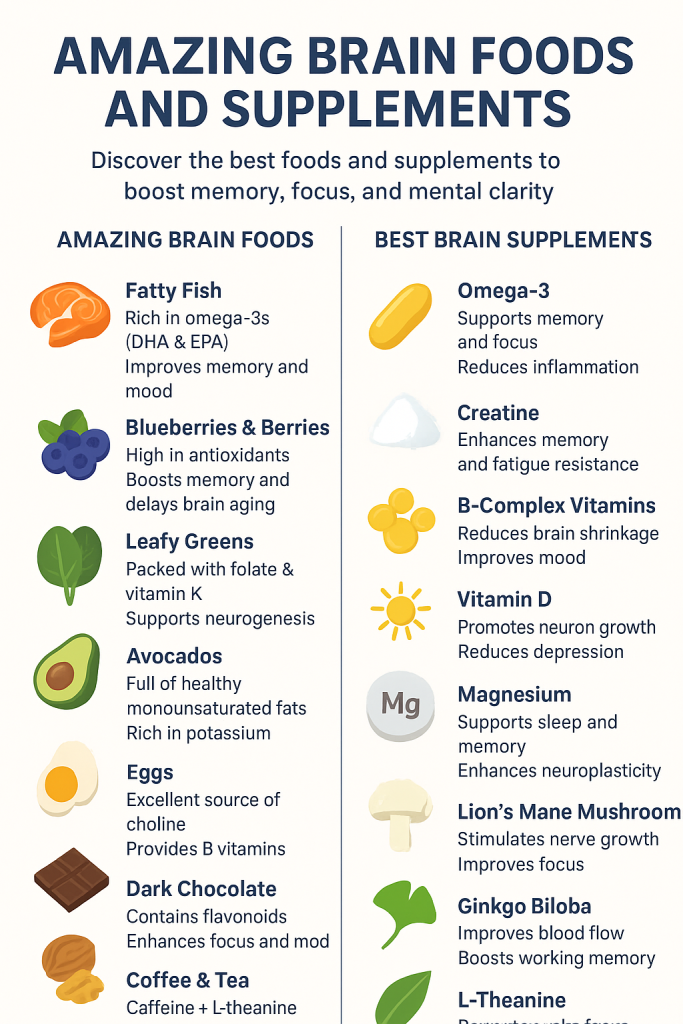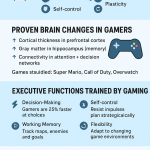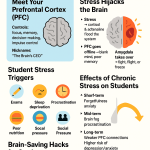Introduction: Why Your Brain Needs the Right Fuel
Your brain is the most energy-hungry organ in your body. Despite weighing only about 2% of your body weight, it consumes roughly 20% of your daily calories. That’s a huge demand, and what you eat—along with certain supplements—can dramatically influence how well your brain performs.
From improving memory and focus to reducing age-related cognitive decline, nutrition plays a foundational role. Incorporating amazing brain foods and supplements into your daily routine can sharpen thinking, enhance mood, and even protect against neurodegenerative diseases.
In this ultimate guide, we’ll explore science-backed foods that nourish the brain, the supplements that can give it an extra edge, and practical tips to combine them effectively for maximum benefit.
Part 1: Amazing Brain Foods
Eating for your brain is not just about avoiding sugar or processed foods; it’s about choosing ingredients that actively support cognition. Here’s a detailed look at the top brain foods and why they work.
1. Fatty Fish: The Omega-3 Powerhouse
Why it’s amazing: Fatty fish such as salmon, sardines, mackerel, and trout are rich in omega-3 fatty acids, specifically DHA and EPA. These are crucial components of neuronal membranes and are involved in neurotransmission, synaptic plasticity, and reducing inflammation.
Science-backed benefits:
- Studies show higher omega-3 intake is linked to better memory, faster cognitive processing, and a lower risk of Alzheimer’s disease.
- DHA is particularly critical for brain structure and function; low levels are associated with cognitive decline.
How to incorporate:
- Eat fatty fish 2–3 times per week.
- Consider broiling, grilling, or baking to preserve nutrients.
- Pair with leafy greens or quinoa for a nutrient-dense meal.
2. Blueberries & Dark Berries
Why it’s amazing: Berries are loaded with anthocyanins, antioxidants that reduce oxidative stress and inflammation in the brain. Oxidative stress is a major contributor to aging and neurodegenerative disease.
Benefits:
- Improve working memory and cognitive function, especially in older adults.
- Enhance neuron communication, aiding learning and memory retention.
Tips:
- Add blueberries to oatmeal, smoothies, or yogurt.
- Include a variety of berries like blackberries, raspberries, and strawberries.
3. Leafy Greens: Spinach, Kale, and Swiss Chard
Why it’s amazing: Leafy greens are high in folate, vitamin K, lutein, and beta-carotene, all vital for brain health.
Benefits:
- Folate helps reduce homocysteine, a compound linked to cognitive decline.
- Vitamin K supports sphingolipid synthesis, crucial for neuron structure.
- Lutein improves memory and cognitive performance in aging adults.
Practical tips:
- Eat raw in salads or smoothies for maximum nutrients.
- Lightly steam to retain vitamins.
4. Avocados: Healthy Fats for Blood Flow
Why it’s amazing: Avocados are rich in monounsaturated fats that improve cerebral blood flow and reduce inflammation.
Benefits:
- Better blood flow supports neuron function and cognitive performance.
- Potassium content helps maintain healthy nerve signaling.
How to enjoy:
- Spread on toast, add to salads, or blend into smoothies.
- Pair with eggs or leafy greens for a complete brain meal.
5. Eggs: The Choline and B-Vitamin Boost
Why it’s amazing: Eggs are a major source of choline, which is used to make acetylcholine, a neurotransmitter essential for memory and learning. They also contain B vitamins critical for reducing brain shrinkage.
Benefits:
- Improved memory and learning capacity.
- Support for mood regulation and cognitive health.
Tips:
- Eat boiled, poached, or scrambled.
- Combine with leafy greens or avocado for a nutrient-rich breakfast.
6. Dark Chocolate (85% Cocoa+)
Why it’s amazing: Dark chocolate contains flavonoids, caffeine, and theobromine. These compounds improve blood flow to the brain, enhance alertness, and boost mood.
Benefits:
- Improved working memory and problem-solving.
- Reduced mental fatigue.
Tips:
- Choose chocolate with 85% cocoa or higher.
- Limit to 20–30 grams per day.
7. Nuts & Seeds: Mini Brain Packs
Why it’s amazing: Nuts like walnuts and seeds like pumpkin or chia are packed with omega-3s, magnesium, zinc, and antioxidants.
Benefits:
- Walnuts enhance memory and cognitive function.
- Magnesium supports neurotransmission and reduces stress.
- Zinc and copper aid in neuron signaling.
Tips:
- Snack on a handful of mixed nuts daily.
- Sprinkle seeds over oatmeal, salads, or yogurt.
8. Coffee & Tea: Alertness Without Crash
Why it’s amazing: Coffee and green tea provide caffeine and L-theanine that improve focus, memory, and calm alertness.
Benefits:
- Coffee enhances alertness, learning, and long-term cognitive protection.
- L-theanine in tea reduces anxiety while boosting focus.
Tips:
- Limit coffee to 2–3 cups/day.
- Green tea can be consumed anytime for sustained mental clarity.
9. Herbs & Spices: Turmeric, Rosemary, and Sage
Why it’s amazing: Certain herbs contain compounds that cross the blood-brain barrier and promote neuroplasticity.
Benefits:
- Curcumin in turmeric reduces inflammation and enhances dopamine and serotonin.
- Rosemary and sage improve memory and cognitive performance.
Tips:
- Add turmeric to curries or golden milk.
- Brew sage or rosemary tea regularly.
10. Fermented Foods: Gut-Brain Axis Support
Why it’s amazing: Fermented foods like kimchi, yogurt, sauerkraut, and kefir provide probiotics that improve gut health, which directly affects brain function through the gut-brain axis.
Benefits:
- Reduced anxiety and stress.
- Improved cognitive clarity and mood.
Tips:
- Include a serving daily, either as a snack or condiment.
Part 2: Brain Supplements
Supplements can provide targeted support, especially if your diet lacks specific nutrients. Here’s the science-backed list of top brain-boosting supplements.
1. Omega-3 Supplements
Form: Fish oil or algae-based capsules.
Benefits:
- Supports memory, focus, and structural brain health.
- Reduces inflammation.
Dosage:
- 1–2 grams/day of combined DHA + EPA.
2. Creatine
Why it’s amazing: Creatine is an energy buffer that supports ATP production, essential for brain energy.
Benefits:
- Improves working memory and mental fatigue resistance.
- Supports cognitive performance during sleep deprivation.
Dosage:
- 3–5 grams/day.
3. B-Complex Vitamins
Why it’s amazing: Includes B6, B9 (folate), and B12.
Benefits:
- Reduces homocysteine, protecting against cognitive decline.
- Improves mood and mental energy.
Dosage:
- As per label instructions or doctor’s advice.
4. Vitamin D
Why it’s amazing: Critical for neuron growth and mood regulation.
Benefits:
- Deficiency linked to depression, cognitive decline, and neurodegeneration.
Dosage:
- 2,000–4,000 IU/day depending on blood levels.
5. Magnesium (L-Threonate form)
Why it’s amazing: Supports neuroplasticity, memory formation, and sleep quality.
Dosage:
- 1–2 grams/day of magnesium L-threonate.
6. Lion’s Mane Mushroom
Why it’s amazing: Contains compounds that stimulate Nerve Growth Factor (NGF).
Benefits:
- Promotes neurogenesis and focus.
- May reduce mild cognitive impairment.
Dosage:
- 500–1,000 mg/day, often in capsule or powder form.
7. Ginkgo Biloba
Why it’s amazing: Improves cerebral blood flow and supports memory.
Dosage:
- 120–240 mg/day.
8. L-Theanine
Why it’s amazing: Promotes calm focus and synergizes with caffeine.
Dosage:
- 100–200 mg with caffeine for enhanced alertness.
Part 3: Combining Foods + Supplements for Maximum Brain Power
- Principle: Food first, supplements second.
- Stack examples:
- Focus Stack: Green tea + L-theanine + walnuts.
- Memory Stack: Salmon + B-complex + creatine.
- Mood Stack: Dark chocolate + turmeric + probiotic yogurt.
- Tips:
- Track your cognitive improvements over weeks.
- Avoid excess supplements; too much of some nutrients can backfire.
Part 4: Sample Brain-Boosting Meal Plan
Day 1
- Breakfast: Spinach omelet + avocado toast + blueberries
- Snack: Walnuts + green tea
- Lunch: Grilled salmon salad with pumpkin seeds and olive oil
- Snack: Dark chocolate + yogurt
- Dinner: Stir-fried tofu with kale, turmeric, and garlic
Day 2
- Breakfast: Oatmeal with chia seeds, berries, and a scoop of creatine
- Snack: Coffee + L-theanine capsule
- Lunch: Sardine quinoa bowl with leafy greens and lemon
- Snack: Kefir smoothie with spinach and blueberries
- Dinner: Roasted chicken with roasted veggies and rosemary
Day 3
- Breakfast: Greek yogurt with walnuts, flax seeds, and turmeric
- Snack: Green tea + dark chocolate
- Lunch: Salmon and avocado sushi rolls
- Snack: Kimchi or sauerkraut
- Dinner: Lentil curry with spinach and brown rice
Conclusion
Your brain thrives on consistent, nutrient-dense fuel. By combining amazing brain foods with targeted supplements, you can boost memory, focus, mood, and long-term cognitive health. Start small—swap snacks for nuts or add leafy greens—and gradually build a brain-boosting lifestyle.
Remember, investing in your brain is investing in your life. The right nutrition today can pay exponential dividends tomorrow.
Want to explore more on how exercise shapes the brain? Check out our brain-healthy motion & diet article here.”
What Japanese Brain-Scan Research Reveals About Gymnast Neuroplasticity
An illuminating study reported by The Asahi Shimbun reinforces this deep dive into neuroplastic changes in Olympic-level gymnasts—which aligns perfectly with our core topic.
Researchers led by Hidefumi Waki at Juntendo University conducted MRI scans on 10 male gymnasts with world-class credentials and compared them to a control group of non-athlete males. Strikingly, certain regions of the gymnasts’ cortex were about 10% larger—notably the precentral gyrus (motor function) and the inferior parietal lobule (involved in spatial perception and sensory integration) 朝日新聞.
Furthermore, the team discovered that athletes with higher average competition scores tended to have larger volumes in the inferior parietal lobule, suggesting that long-term training reshapes brain regions tied to spatial and sensory processing 朝日新聞. Interestingly, no regions were found to be smaller, underscoring that these adaptations appear to be built—not traded off.
Waki notes that gymnasts’ ability to make split-second body adjustments—even before initiating movement—is central to their expertise 朝日新聞. These insights dovetail with our discussion on prefrontal recalibration, motor-visual integration, and the emergence of autopilot-like performance in elite athletes.



